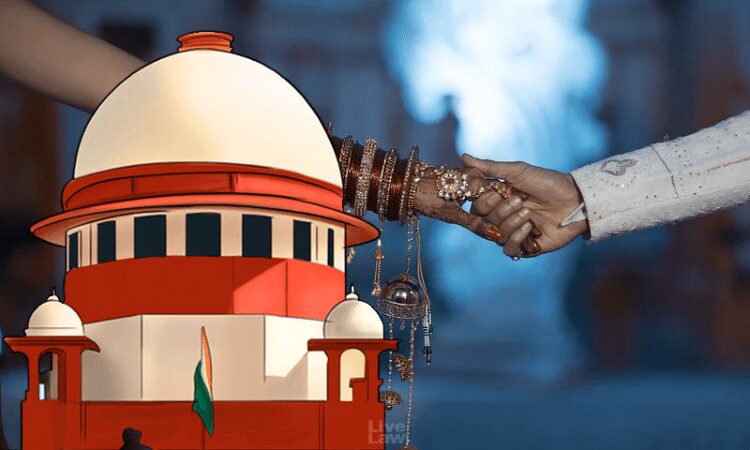
The Supreme Court of India recently passed a landmark judgment allowing the dissolution of marriage on the grounds of ‘Irretrievable Breakdown of Marriage’. The judgment was delivered by a five-judge bench comprising Justices Sanjay Kishan Kaul, Sanjiv Khanna, A.S. Oka, Vikram Nath, and J.K. Maheshwari on the Shilpa Sailesh v. Varun Sreenivasan.
Background
Previously, in India, the only way to dissolve a marriage was by proving one of the grounds mentioned under Section 13 of the Hindu Marriage Act, 1955. These grounds included adultery, cruelty, desertion, conversion to another religion, venereal disease, and unsoundness of mind. However, proving these grounds was often difficult and time-consuming, leading to many couples being entrapped in unhappy marriages.
The petitioners, in this case, sought the dissolution of their marriage on the grounds of an ‘irretrievable breakdown of marriage’. They argued that they had been living separately for many years, and their marriage had completely broken down irretrievably. The lower courts had rejected their plea since the ‘irretrievable breakdown of marriage’ was not recognized as a valid ground for divorce under the Hindu Marriage Act, 1955.

The Judgement
The Supreme Court, after thorough consideration, decided that an ‘irretrievable breakdown of marriage,’ can be a valid ground for the dissolution of marriage, even though it is not specifically mentioned in the Hindu Marriage Act, 1955. It was held that “when we are convinced that the marriage has irretrievably broken down, it would be unrealistic for the law not to take notice of that fact, and it would be harmful to society and injurious to the interests of the parties”.
The court further stated that before granting a divorce on the grounds of an ‘irretrievable breakdown of marriage’, the court must be satisfied that efforts were made to save the marriage. It was affirmed that “It must be demonstrated that all efforts at mediation/conciliation including efforts in terms of Order XXXIIA Rule 3 CPC, or Section 23(2) of the Act or otherwise, have failed and there is no likelihood of success in that direction”.
Impact of the Judgement
This judgment is a significant step towards modernizing Indian divorce law. It will provide couples with an alternative means of dissolving their marriage, especially those who are trapped in unhappy marriages but cannot prove the grounds mentioned under Section 13 of the Hindu Marriage Act, 1955. The judgment will also reduce the burden on the already overburdened Indian courts. The new ground of ‘irretrievable breakdown of marriage’, will enable the court to grant divorces more quickly and efficiently, thus reducing the backlog of cases.











